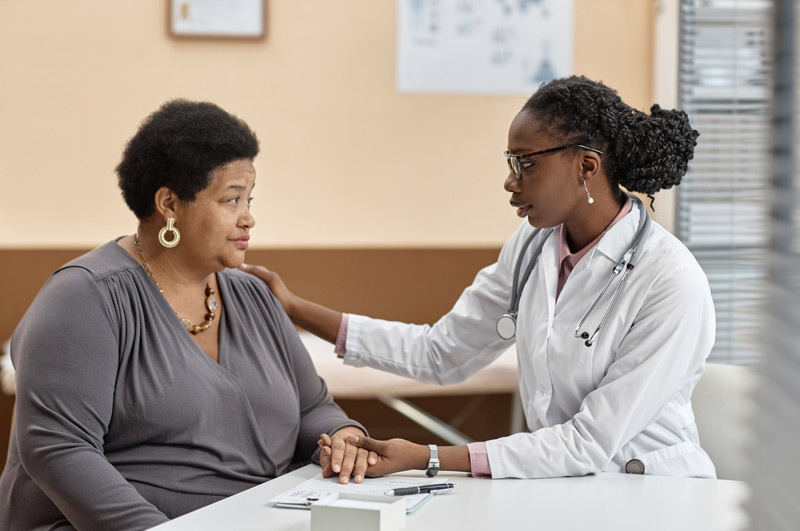A fistula is an abnormal passage between two organs or vessels. It can develop between the intestine and the skin, between the vagina and the rectum, or within the urinary tract.
A rectovaginal fistula forms between the rectum and the vagina.
Symptoms of Fistulas
Patients with a fistula may experience:
- Diarrhea
- Frequent UTIs
- Vulvar irritations
- Abdominal pain
- Fluid drainage from the vagina
- Urine leakage from the vagina
- Leakage of gas and/or feces into the vagina
- Pain during sexual intercourse
- Irritation or pain in the vagina, vulva, and perineum


Rectovaginal Fistula Factors
A rectovaginal fistula may result from:
- Diverticulitis infections
- Injury during childbirth
- Vaginal injury unrelated to childbirth
- Crohn’s disease or other inflammatory bowel disease
- Long-term inflammation of the colon and rectum
- Fecal impaction
- Complications after pelvic surgery
- Infections in the anus or rectum
- Radiation treatment or pelvic cancer
If untreated, a rectovaginal fistula may lead to hygiene issues, fistula recurrence, recurrent vaginal or urinary tract infections, abscess formation, fecal incontinence, irritation or inflammation of the vagina, perineum, or skin around the anus.
Diagnosing Fistulas
Diagnosis starts with a physical exam and imaging tests like pelvic X-rays or CT scans. A cystoscopy may also be performed to assess the bladder.
A fistula may be diagnosed with:
- Contrast tests (e.g., vaginogram or barium enema)
- Blue dye test
- CT scan
- MRI
- Anorectal ultrasound
- Anorectal manometry
- Additional tests, such as colonoscopy or biopsy

Treatment Options for Fistulas
Non-invasive treatments may include fibrin glue to seal the fistula, plug or collagen matrix to fill the fistula, and a catheter to drain small fistulas. Surgical options can include transabdominal surgery via an abdominal wall incision and laparoscopic surgery using small incisions with cameras and tools.
For rectovaginal fistulas, treatment may involve antibiotics for infections and infliximab to reduce inflammation. Surgical solutions include:
- Sewing a biologic tissue patch or anal fistula plug into the fistula
- Applying a tissue graft or folding healthy tissue over the fistula opening
- Repairing the anal sphincter muscles
Choose UCI Pelvic Health Center
If you are experiencing symptoms of a rectovaginal fistula, the UCI Pelvic Health Center is here to help. A rectovaginal fistula, an abnormal connection between the rectum and vagina, can cause significant discomfort and impact your quality of life. Symptoms may include diarrhea, vomiting, nausea, leakage of gas or stool into the vagina, frequent urinary tract infections, and irritation or pain in the vaginal and perineal areas.
At UCI Pelvic Health Center, our team of specialists provides comprehensive care for the diagnosis and treatment of rectovaginal fistulas. We offer advanced diagnostic tools, including contrast tests, CT scans, MRIs, and anorectal ultrasounds, to accurately identify and assess the condition. Our treatment options range from non-invasive solutions, such as medicinal adhesives and collagen plugs, to various surgical procedures tailored to your specific needs.

